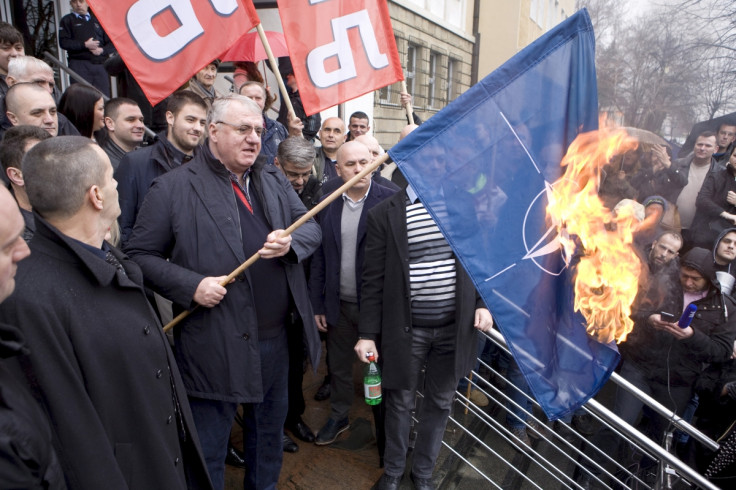Serbian ultranationalist Vojislav Seselj refuses to return to the Hague for war crimes verdict

A Serbian ultranationalist accused of war crimes during the brutal Balkans wars has burned EU and Nato flags and vowed not to return to The Hague for the verdict of his trial. Vojislav Seselj is currently awaiting sentencing from the International Criminal Tribunal for the former Yugoslavia (ICTY) with a conclusion expected to his five-year trial in late March.
During his trial the 61-year-old was accused of leading Serbian volunteers to attempt to "cleanse" large parts of Bosnia, Croatia and Serbia's northern Vojvodina region in the conflict following the break-up of the former Yugoslavia in the early 1990s.
Seselj has not refuted his nationalistic beliefs and is still the figure head of the far-right Serbian Radical Party with parliamentary ambitions April's elections this year, although he is due to appear in front of the ICTY on 31 March.
The former deputy Prime Minister faces three counts of crimes against humanity, including persecution, deportation and forcible transfers, and six other charges including murder and torture. The Sarajevo-born politician was allowed to return to Serbia in 2014 for cancer treatment.
While back home, he was due to appear at the country's own war crimes court in Belgrade to discuss The Hague's demand but the hearing was postponed for procedural reasons. Afterwards Seselj burned the EU and NATO flags outside the court in front of around 100 supporters.
The father-of-four surrendered to the ICTY in 2003, and his trial ran from 2007 to 2012. Since returning to Serbia he has repeatedly refused to return to the tribunal under any circumstances.
Judges at The Hague have also accused Belgrade of failing to cooperate with the war crimes tribunal by not arresting three suspects in a separate contempt case pertaining to Seselj's trial.
It is estimated that more than 100,000 people died in the conflicts that erupted between successor countries as Yugoslavia tore itself apart in in the early 1990's. The Bosnian war saw battles between Muslims, Croats and Serbs.
© Copyright IBTimes 2024. All rights reserved.






